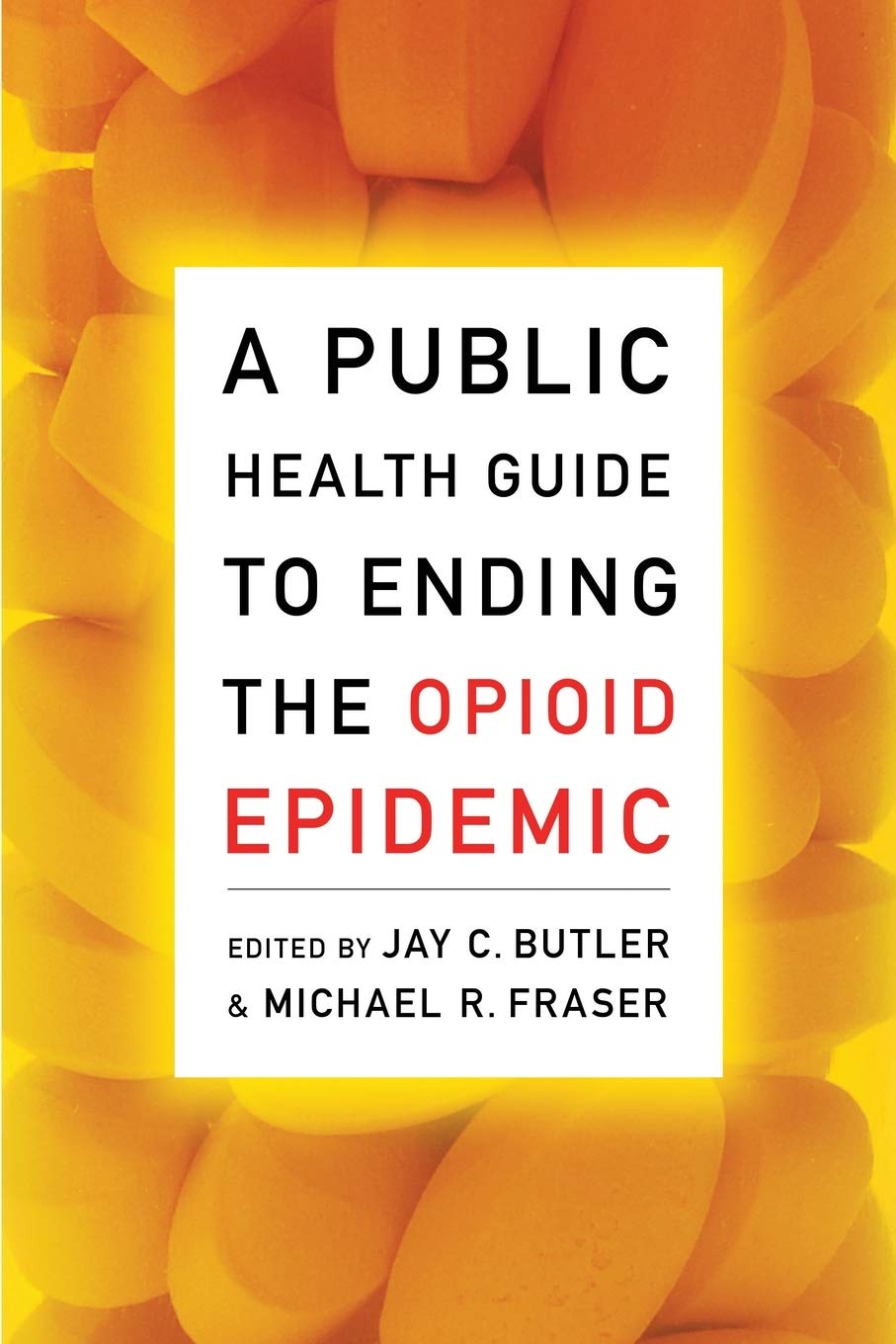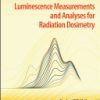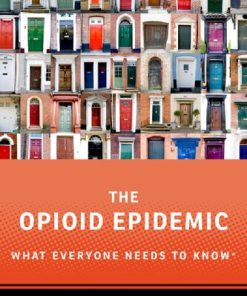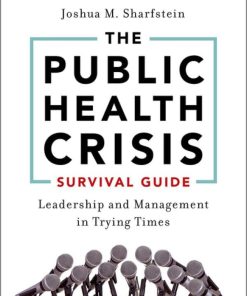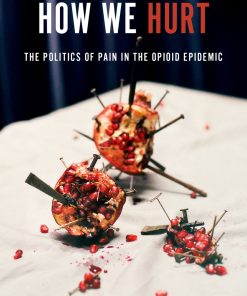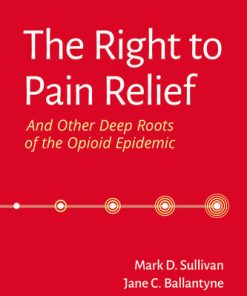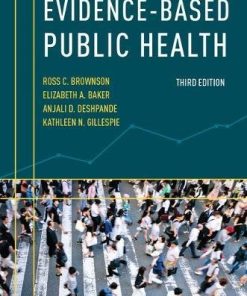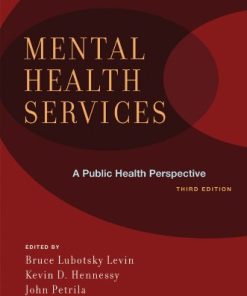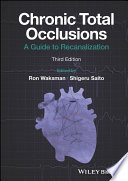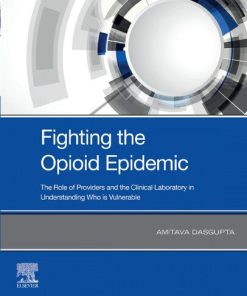A Public Health Guide to Ending the Opioid Epidemic Jay C. Butler (Editor)
$50.00 Original price was: $50.00.$25.00Current price is: $25.00.
A Public Health Guide to Ending the Opioid Epidemic – Ebook Instant Download/Delivery ISBN(s): 9781900568104,9780190056810,0190056819,1900568101,9780190056834, 0190056835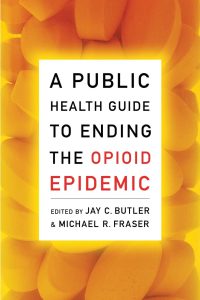
Product details:
- ISBN 10: 0190056835
- ISBN 13: 9780190056834
- Author: Jay C. Butler, Michael R. Fraser
THE DEFINITIVE GUIDE FOR PUBLIC HEALTH PROFESSIONALS FIGHTING THE OPIOID EPIDEMIC The opioid crisis has devastated families and communities across the United States. Changes in policing and medical practices have been swift, but they’ve achieved only a modest impact on the fundamental causes of substance misuse and addiction. The necessity for upstream intervention is clear. But what does that look like? A Public Health Guide to Ending the Opioid Epidemic does what only a public health approach can: offer credible, scalable, and empirically supported approaches to uprooting one of society’s most pernicious challenges. It systemizes the core tenets of the public health approach to substance misuse and addiction, which alongside clinical approaches (prescription guidelines and monitoring, increased access to overdose-reversal medication, and medication-assisted treatment availability) offers a roadmap for end-to-end response to this diverse problem. Core elements of the public health approach, all covered here in practical terms, include: · How to support community-based, primary prevention of substance misuse and addiction in different settings and populations · How to effectively address the cultural, social, and environmental aspects of health that are driving the current epidemic · How governmental public health agencies play a significant role in responding to the epidemic, both in the field’s traditional model of disease surveillance and control and in more directed approaches to health promotion (building community resilience; addressing the impact of adverse childhood events; mitigating the root causes of addiction) These frameworks offer a foundation for understanding, analyzing, and meaningfully impacting the burden of opioid misuse and addiction in any population or setting. A Public Health Guide to Ending the Opioid Epidemic is a roadmap for meaningful change.
Table contents:
1 Introduction: Why a Public Health Guide to Ending the Opioid Crisis?
2 The Emergence of an Epidemic
3 Public Health Approaches to Preventing Substance Misuse and Addiction
4 Public Health Approaches to Overdose Prevention and Harm Reduction
5 Stigma and the Language of Addiction
6 The Neuroscience of Addiction: A Primer for Public Health Professionals
Part II: Connecting Clinical Perspectives and Public Health Practice
7 Non-Opioid Alternatives to Managing Chronic Pain: An Overview for Public Health Practitioners
8 The Role of Community Pharmacy in Addressing and Preventing Opioid Use Disorder
9 Screening, Brief Intervention, and Referral to Treatment (SBIRT) as a Public Health and Prevention Strategy to Address Substance Misuse and Addiction
10 Expanding Access to Treatment and Recovery Services Using a Hub-and-Spoke Model of Care
11 Engaging Payers to Transform Treatment of Substance Use Disorders
Text Box 11.1. Shatterproof Substance Use Disorder Treatment Task Force: Payer Representatives
Text Box 11.2. About Shatterproof
12 Collaborating to Address Substance Use Disorder in Correctional Settings: The Rhode Island Experience
Text Box 12.1. Definitions of Criminal Justice Terms
Part III: Moving Upstream—Prevention, Partnership, and Public Health
13 The Role of Public Health Agencies in Convening Partnerships and Collaborations to Respond to the Opioid Crisis
14 Systems Thinking and the Opioid Epidemic in Georgia
15 A Comprehensive Approach to Addressing the Opioid Crisis
16 Five Key Strategies for an “Upstream” Approach to Preventing Opioid Misuse and Addiction
17 Addressing Community Trauma and Building Community Resilience to Prevent Opioid Misuse and Addiction
18 Early Childhood Trauma and Substance Misuse and Addiction: An Opportunity for Prevention
19 Public Health and the Criminal Justice System: Partnerships to Promote Health and Prevent Addiction
20 Building Effective Public Health and Public Safety Collaborations to Prevent Opioid Overdose at the Local, State, and Federal Levels
21 Public Health Surveillance and the Opioid Crisis
22 The Role of Prescription Drug Monitoring Programs (PDMPs) in Addressing the Opioid Overdose Epidemic
23 Prescribing Guidelines and Opioid Stewardship
24 Developing a Culture of Opioid Stewardship: The Pennsylvania Example
People also search:
ending of public health emergency
fda public health emergency
u.s. public health services (phs) guideline
journal of public health management and practice author guidelines
journal of public health issues and practices
You may also like…
Politics & Philosophy - Politics
The Public Health Crisis Survival Guide 2nd Edition Joshua M. Sharfstein
Uncategorized
Medicine & Health Science
Mental Health Services: A Public Health Perspective – Ebook PDF Version
Uncategorized


